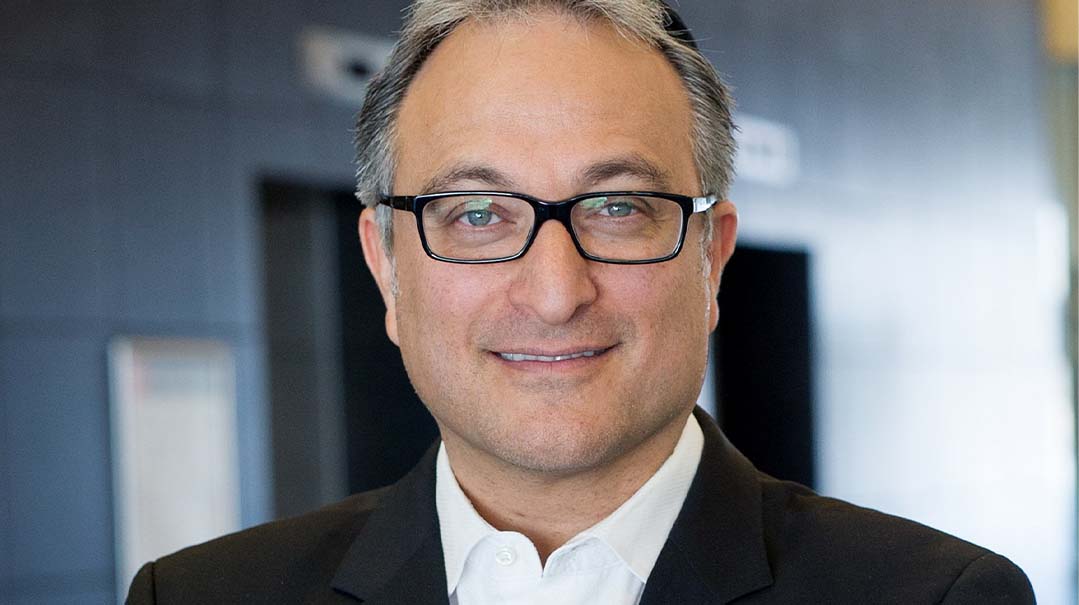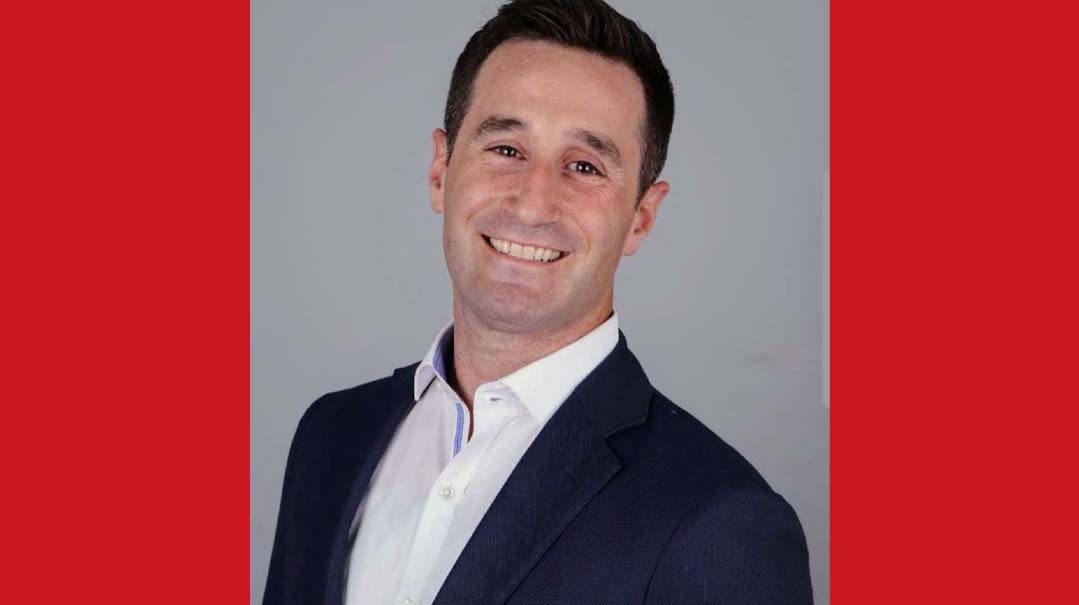Work/Life Solutions with Jon Medved


Who Jon Medved, Founder & CEO of OurCrowd
“One of Israel’s leading high-tech venture capitalists” — Washington Post
“One of the top-10 most influential Americans who have impacted Israel” — New York Times
Medved has taken on himself a role as Israel’s business ambassador “that — in any other country — would typically belong to the local Chamber of Commerce, Minister of Trade, or Foreign Secretary” — bestselling book, Start-Up Nation
What Launched in 2013, OurCrowd has become the leading global equity crowdfunding platform for accredited investors and angels, with $750 million raised, investment in over 160 portfolio companies, and 21 exits, including Jump Bikes (acquired by Uber) and Replay (acquired by Intel). OurCrowd has been ranked as Israel’s most active VC and is on track to raise $1 billion by year’s end.
Prior to OurCrowd, Jon was cofounder & CEO of Vringo, a leader in mobile technologies and intellectual property, and founder and general partner of Israel Seed Partners, one of Israel’s leading venture capital funds.
Where Jon lives in Jerusalem with his wife, close to his children and grandchildren, but often travels all over the world. He regularly speaks to groups, business leaders, public officials, and on TV and radio spots — both in Israel and abroad — about Israel’s tech miracle.
Why Ten years ago, I learned about Jon, the business powerhouse and outspoken Israel advocate, when I worked with his son Yossi. Since then, I’ve seen him extremely active in the nonprofit world too, brilliantly chairing an Aish Tel Aviv’s Gala Dinner for example, and volunteering for numerous organizations. For his contributions to Israel as a new immigrant, he was awarded the Nefesh B’Nefesh “Boneh Zion” award at Israel’s parliament.
This interview was months in the making. I was super excited to hear Jon’s story firsthand and share it with you.
1 of 9 What opportunities or personalities played a key role in your career path?
My father.
After completing my undergraduate degree at Berkeley and working for the Jewish Agency in New York, I moved to Israel in 1980, convinced I’d be a political organizer or a Zionist educator. Ultimately, I joined my dad in his fiber optics start-up. He paid me $100 a month to represent him in Israel and build and maintain connections. After reading up on fiber optics — even getting a tutor! — I helped raise his first money in Israel, before there was any venture capital. (The first venture fund was set up in 1986.) I ended up temporarily relocating to Santa Monica, where I worked with my dad for five years until we sold the company to Amoco.
But it wasn’t just that he gave me my start. My dad taught me multiple lessons about work/life balance. He had grown up Orthodox, but drifted away from it when he moved out west. I was born in San Diego and grew up on L.A.’s West Side, neither of which are centers of Jewish life. But my dad came back; he became a baal teshuvah, taught himself to be a baal korei, and became an active member of a community on the Venice Boardwalk.
He made aliyah in 1991, the week after we sold the company to Amoco. Amoco kept me for a year, but told Dad he could leave. His response? “I’m going to Israel!”
It took him a couple of weeks to open another start-up here in Israel, as a new immigrant, at age 65. He called it Jerusalem Optical Link Technologies (JOLT), and it used optical wireless transmission technologies (more advanced than fiber optics) to send optical signals to the atmosphere. It was ultimately sold in an M&A, and it was the most successful business he ever started!
My dad was an extraordinary guy, productive, brilliant, and he always had fun — he loved life! In Santa Monica, he would come into my office at 3 p.m. and say, “Son, time to go out!” And I’d respond, “We have to get this proposal submitted!”
“This proposal will wait. Let’s go!” And he’d drag me out of the office for some fun.
In our conference room, we had a bunch of seforim, because he made sure that we had shiurim in our office. He said, “Look, we don’t have a good alarm system or great insurance, but at least we’ll have shiurim here” — and no one ever broke in!
3 of 9 What do you do to relax, recharge, or simply have fun? How do you make time for that, and how often?
First of all, it’s Shabbos. I’m alive because of Shabbos. Given the pace and intensity with which I work, if I didn’t take the 25 hours off, I would long be a dead man.
Thanks to my wife Jane, we have amazing Shabbosim. We live in Jerusalem with our amazing kids and grandkids, and an unreal community. Shabbos has never been about what you could or couldn’t do. It was always: “How cool is this?!” I mean, who doesn’t want our kind of Shabbos?!
Besides the incredible singing and divrei Torah, it’s not Shabbos unless there are tons of guests. If only 15 people are at our table, my son will ask my wife: “Why aren’t there more guests?!” We need at least 20 people for it to feel proper.
Second, an annual vacation helps too. We’ve been very fortunate to visit exotic areas, renting a home and arranging a military-level operation to get kosher food and kasher the kitchen. Being Jewish has never been an impediment to extreme travel. We just came off of a three-week vacation in Jackson Hole, Wyoming with 17 people. We did hiking, horseback riding, fishing, and even spoke for Chabad of Jackson Hole!
7 of 9 If you were asked to deliver a TED Talk watched by 50 million people, what topic would you choose to speak about? Why?
I’d like to give a TED Talk about the gift of Jewish entrepreneurship to the world, as reflected here in Israel, the Start-Up Nation. There shouldn’t be a mystery as to why Israel is so successful in creating new companies and technologies. Jews have been quite good at business for a long time. Creating wealth, in Judaism, isn’t fraught with evil. It’s a good thing, a blessing. We just need to be ethical about it.
In fact, Judaism sees business people as partners with G-d and creation. The blessing of creating jobs is one example.
We’re about 0.2 percent of the world’s population, and about 20 percent of the major billionaires. (Five Jews just made Forbes’s Top 10 Wealthiest Americans List!) On the list of most successful companies all over the world, somewhere between 15 to 30 percent are led by Jews. In the last 100 years, about 30 percent of Nobel Prizes went to people of Jewish heritage. A ridiculous number of Jews are in theater, art, and business.
This is not a bit beyond our proportions; we are talking about 100 times! That means something weird is at work. Either there’s a conspiracy effort or there’s something there. That’s the drive you see in Israel. As we build a positive story of the Start-Up Nation, we cannot look at it as an Israel story, but rather a continuation — or fulfillment — of the Jewish story.
Whether companies are run by religious people or not, Jews take risks, Jews create, Jews want to help the world. And we’re not just making money, but solving problems relating to agriculture, disabilities, cyber-security… this is good for everyone.
Watching dozens of countries stream to Jerusalem to be part of this revolution is somewhat biblical. I clearly see a growing recognition of Israel’s incredible importance in the world of innovation.
8 of 9 Can you share a time when you had to navigate the tension between your deepest values and the business world?
A year ago, I was in Hong Kong with an important investor, a gentleman I really respect, and I’d worked very hard to develop the relationship. After a wonderful breakfast together on Friday, we were making real progress. Then he said: “I need to meet you tonight for dinner.” I already had plans with the Hong Kong Jewish community for Shabbos, so I said, “I can’t do it. It’s Shabbos.”
He responded: “Come to me for Shabbos!”
“It would be inappropriate for us to talk about business, I’m sorry,” I explained.
So he suggested meeting shortly before Shabbos. I agreed, as long it was early enough to get to my destination for Shabbos. We went back and forth, and the timing simply didn’t work. I finally had to say: “I’m sorry, this won’t work for me. It’s Shabbos!”
He was aghast. It took months to get that breakfast done, and he liked the breakfast so much that he wanted to meet me right away for dinner. And I turned it down! I realized that people typically respect people of value and commitment. And I knew that if it was meant to happen, it would happen in any event.
Ultimately, he visited me in Israel, and came to my house for Shabbos dinner. He got it. And we started working together. That ended well.
9 of 9 If you were advising a young man/woman hoping to launch a career as an entrepreneur, which “do’s” and “don’ts” would you share?
Do it now! You’ll never have a better time to start a company than today. The market for innovation has never been so vibrant and exciting. If you’ve been thinking about starting a company, don’t think about two to three years. Market conditions are very important, and timing is everything. You never know for sure if this window will last for several years.
I’ve never before seen the elements in place that allow people to start companies so quickly. Whether it’s renting server space on the cloud, leveraging open-source software, getting a logo for $5, raising money from traditional angel investors and venture capitalists along with crowdfunders, using social media for promotion… you can get started in a way that doesn’t require a lot of money or obstacles.
The key is making the decision to do it. So get started!
Originally featured in Mishpacha, Issue 732. Moe runs business development for Hometalk, where he spearheaded influencer partnerships that generated 700 million video views. He holds an MBA and semichah, and published his first book, The Gift of Stuttering (Mosaica Press, 2016). He also teaches a daf yomi shiur, produces inspirational videos for Aish.com, and gives
lectures to audiences worldwide. Moe lives in Ramat Beit Shemesh with his wife and children.
Oops! We could not locate your form.












